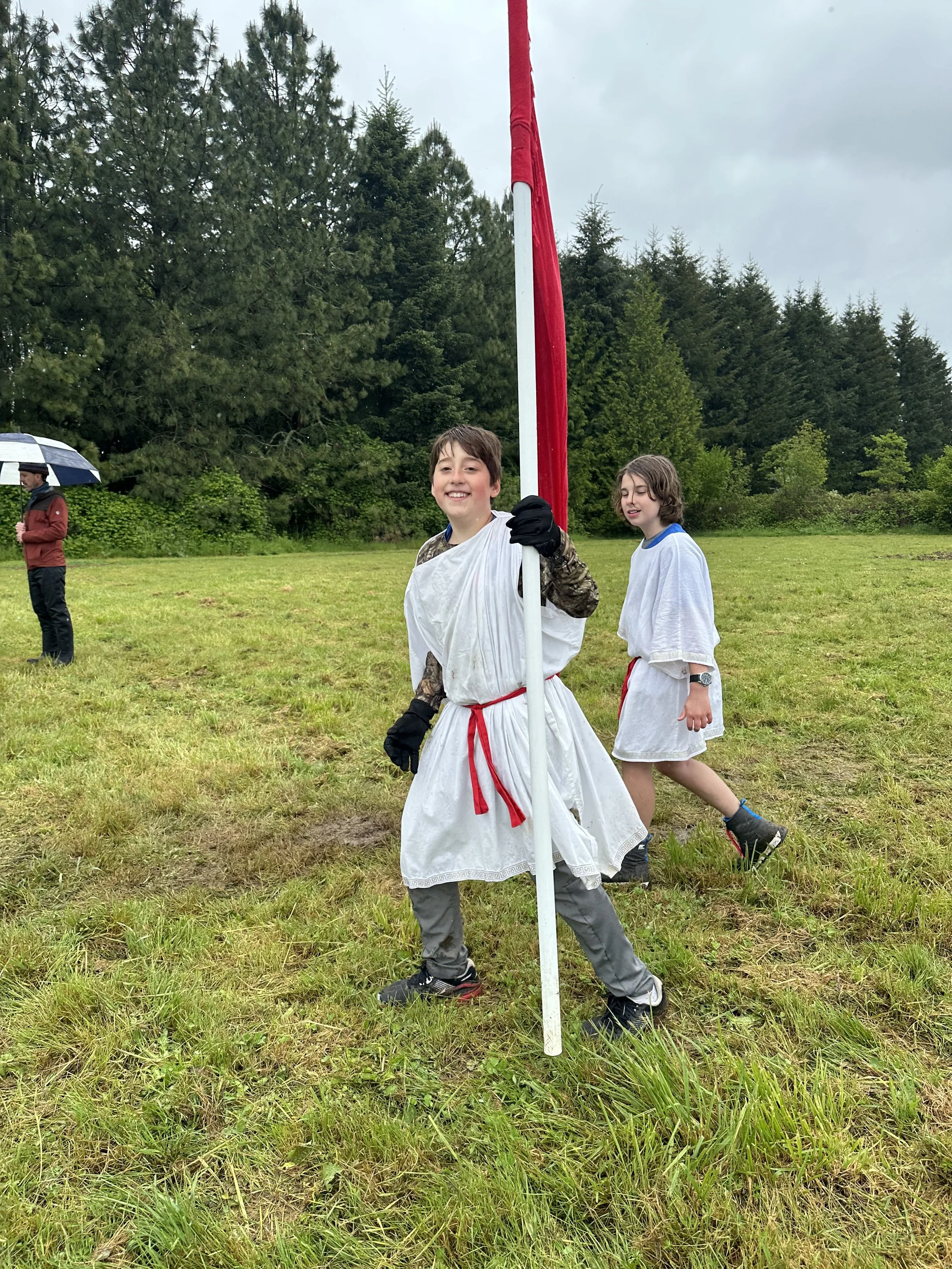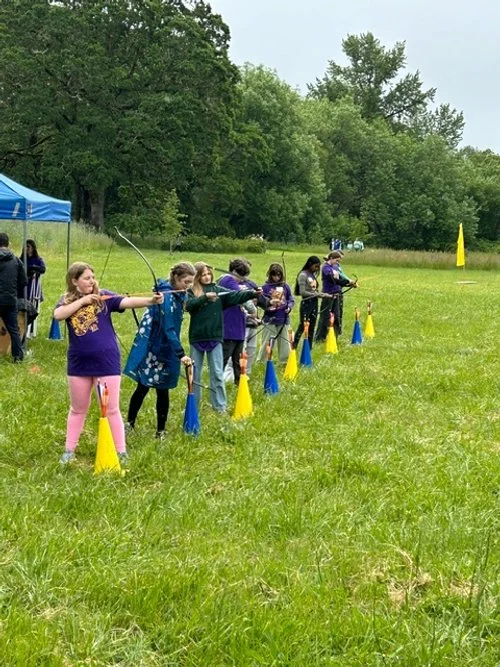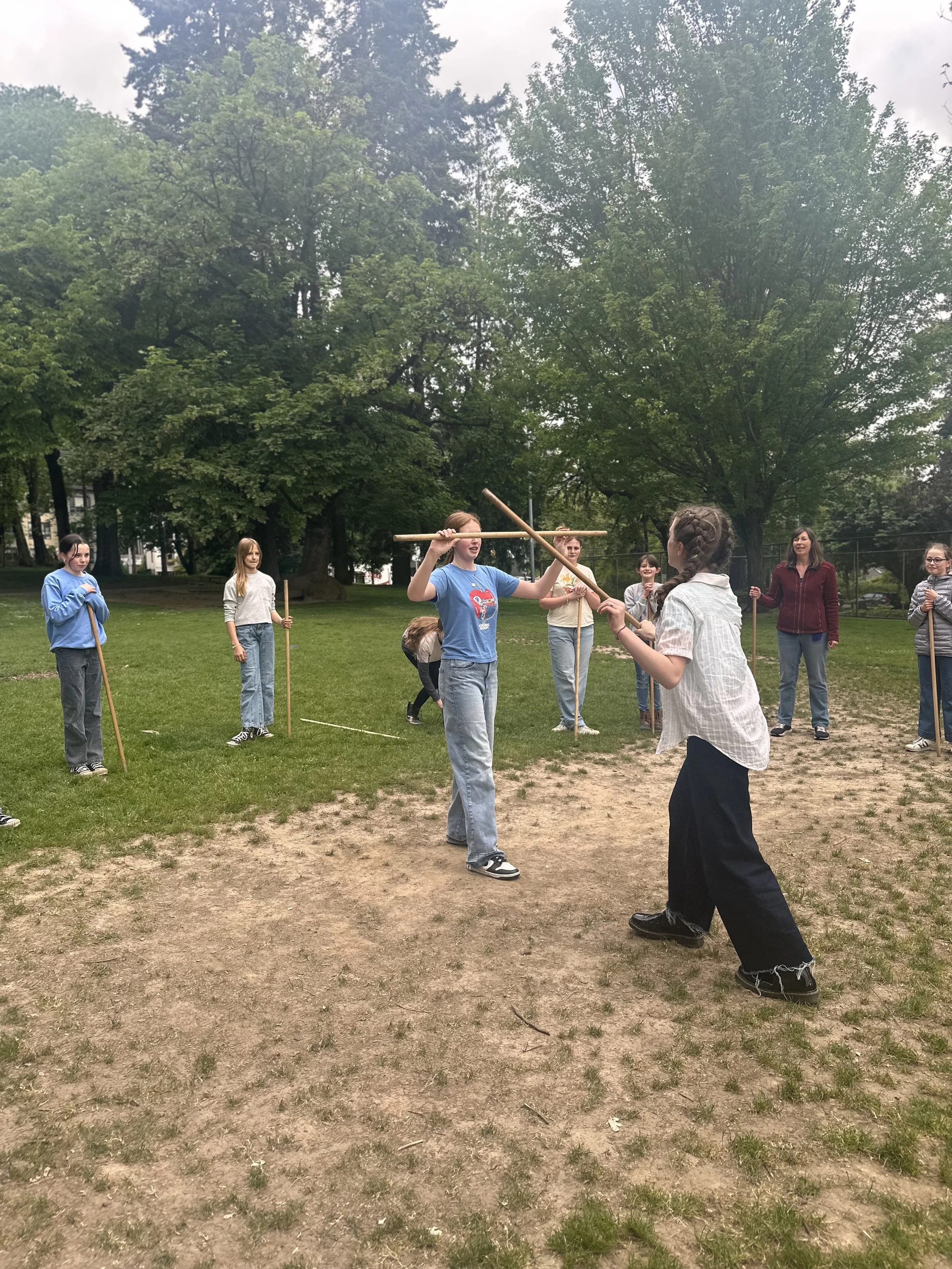From Ancient Greece to Global Diversity: Cultural Learning Through Movement
As Waldorf Educators, we strive to approach subjects throughout the grades from all angles with lively imagination. Waldorf students listen to stories and then live into them through art, creative writing, drama, music, and movement. How can teachers infuse all of the subjects, including movement education, with imagination? That’s exactly what long-time Cedarwood movement teacher Heather Pearl has done every day for the past 19 years.
As our beloved Mz. Pearl moves on from her time at our school, we want to recognize the remarkable difference she has made in the lives of Cedarwood students, particularly through two fantastic events, which she has led and coordinated, that perfectly demonstrate Waldorf Education in action: the fifth-grade Olympiad and sixth-grade Global Games.
Waldorf teachers recognize that lessons go deeper and are more meaningful when students are able to explore subjects in a multitude of ways, and for many students, movement is a key component of their learning. Events like the Olympiad and Global Games blend the imaginative pictures the students build in the classroom through the stories their class teachers tell with meaningful movement experiences. The result is an image-rich event that allows students to play the roles of gods and goddesses or valiant knights and heroes. They get to engage in age-appropriate make-believe as they learn key lessons about teamwork, risk-taking, and overcoming adversity.
The Olympiad: Embracing Ancient Greek Traditions
Aligning with the fifth-grade history curriculum, the Olympiad allows students to step back in time and connect with the ancient Greeks. As students prepare for the Olympiad events, they learn that In ancient Greece, athletes would write messages to Apollo along the edge of the discus, offering it up with reverence and intention. Waldorf students are inspired to emulate this mood and gesture, moving beyond mere role-playing to a deeper, imaginative connection with the past that inspires their own experience of the present.
Olympiad Events
Javelin
Discus
Greek Wrestling
Long Jump
Running
At the same time that students connect with these imaginative pictures, they are striving to succeed at the physical events as parents, teachers, and peers look on. The events are not judged, and winners are not announced, but every student is recognized for their accomplishments. As students embody the imaginative picture of the Greek gods and goddesses, they elevate the events beyond the everyday, so their experience takes on greater significance than whether or not they “won” the event.
Through this deepened community experience of history and culture, every student is a winner. The experience is authentic, fostering an openness to learning through imagination, blending physical movement with historical reverence during a time when students are increasingly pushed to leave behind qualities like imagination and reverence.
The Global Games: Celebrating Diversity and Commonality
The Global Games event provides a broader perspective, highlighting the commonalities and diversity of human development around the world. Students engage in activities like archery, javelin, and wrestling, extending their experience of the Olympiad to learning different styles that reflect practices from different continents.
The Global Games experience is guided by a narrative that leads the students through both physical and mental challenges in a team-building atmosphere. Students imagine themselves to be valiant knights from around the globe, called together and challenged with a quest. They must travel the seven continents and learn something from each place that could help bring peace to the land. Along the journey, they gain skills and trade, working together to accomplish the tasks and practicing the noble virtues of perseverance, trust, hope, honor, equanimity, compassion, and collaboration.
This story makes tangible Cedarwood’s values of diversity and equity, helping the students deepen their understanding of the sixth-grade Middle Ages history curriculum, which can often focus on the contention between different cultures of the world. Instead, the event demonstrates that, ultimately, peace and harmony are worthy, attainable goals.
Another important aspect of both events is the valuable experience of observing and then critically assessing one’s own efforts. As parents and teachers strive to help students feel accepted and valued, regardless of their performance, we may make the mistake of discounting the importance of teaching children how to objectively reflect on their performance.
These events provide an opportunity for adults to guide students through the process of observing their efforts, acknowledging their disappointments, and making a plan to improve. This reflective process teaches them that they are always in process, emphasizing observation and learning over judgment.
Both events culminate in a celebration of individual improvement and collective effort. Every student receives a medal and is verbally appreciated for their unique contributions to the group’s accomplishments.
The goal is that students feel seen and valued, while recognizing their capacity for improvement in a learning environment rich with historical imagery and global awareness.





